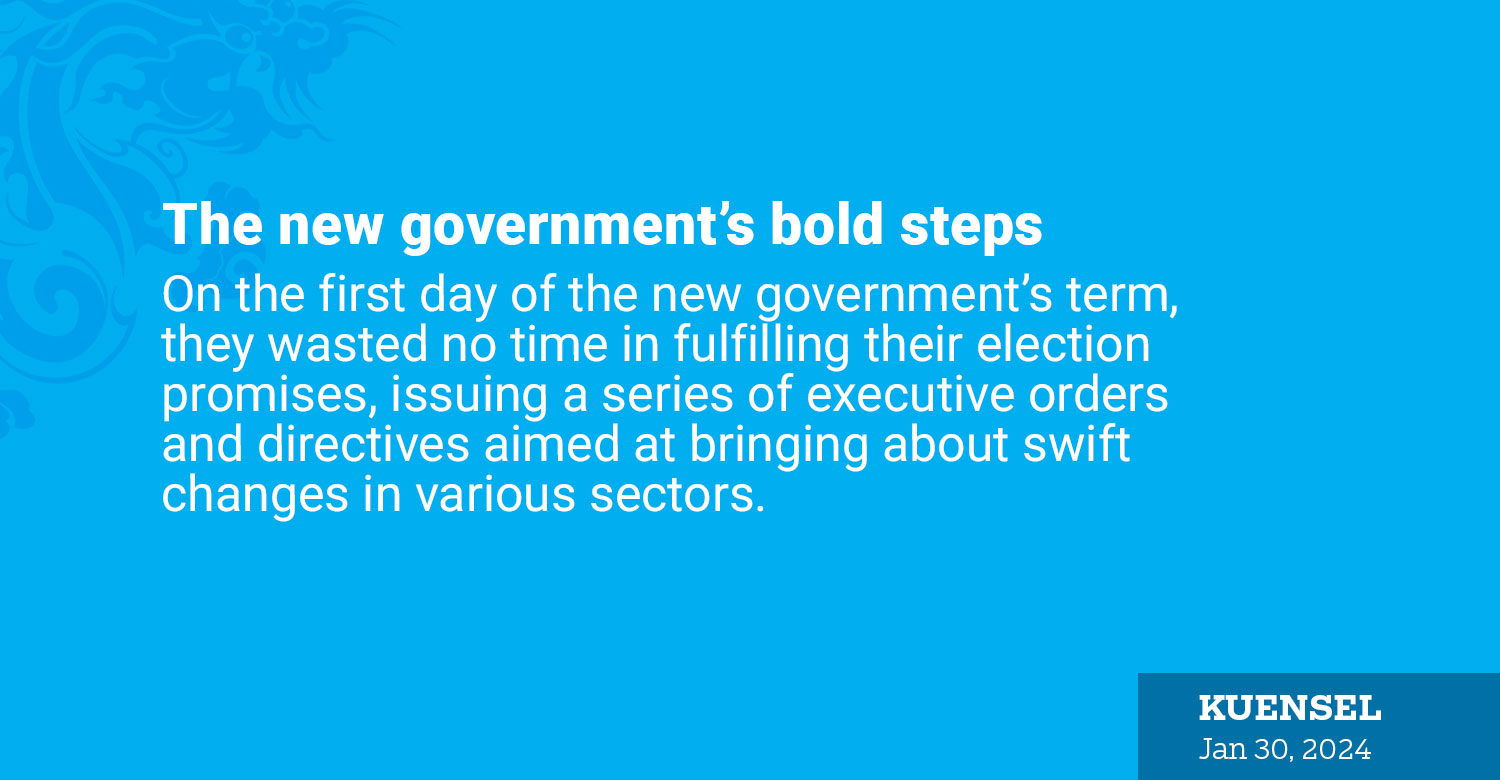KP Sharma
On the first day of the new government’s term, they wasted no time in fulfilling their election promises, issuing a series of executive orders and directives aimed at bringing about swift changes in various sectors.
One important executive order was the immediate halt of collecting Nu 10 at the Phuentsholing pedestrian terminal. This move aligns with the government’s commitment to reduce inconveniences faced by individuals entering and leaving the country. It reflects a practical step towards enhancing the overall experience for citizens and visitors alike.
In pursuit of economic improvement, the government established the Economic Development Board (EDB) through another executive order. The creation of EDB signifies a dedicated effort to transform and boost the economy. The first meeting, scheduled within a month, indicates the government’s urgency and commitment to this economic agenda.
Addressing the economic challenges further, a high-level task force has been formed through an executive order to develop an implementation plan for a Nu 15 billion economic stimulus package. This strategic move showcases the government’s proactive approach in tackling economic issues, with a clear timeline set for submission by March 1, 2024.
The final executive order involves the creation of a committee to examine the regularization of contract employees. This move displays the government’s commitment to ensuring fair labour practices and is expected to yield a comprehensive study report within a month.
Among the directives issued, the finance ministry is tasked with revising the tenancy agreement for Changjiji colony residents and developing plans for additional low-income housing. This step aims at addressing housing issues, aligning with the government’s broader agenda to improve living standards.
The Education and Skills Development Ministry has received a directive to study the feasibility of exempting Saturdays for schools and to review teachers’ Individual Work Plans (IWP). This indicates a commitment to enhancing the education system and teacher welfare, with alternative solutions expected by March 1, 2024.
Recognising the challenges faced by the private sector, the Ministry of Industry, Commerce, and Employment (MoICE) has been directed to conduct a comprehensive review of business regulatory processes. Additionally, MoICE is mandated to review the foreign direct investment (FDI) policy and formulate a plan to boost tourism, emphasising practical steps to support economic growth.
The Ministry of Foreign Affairs and External Trade is tasked with proposing a comprehensive plan on tourism promotion using diplomatic channels. This approach reflects a holistic strategy for tourism development, leveraging embassies and consuls for effective promotion.
Turning attention to infrastructure, the Ministry of Infrastructure and Transport has been directed to conduct a feasibility study on constructing five airstrips in strategic locations. This forward-looking move aims to enhance connectivity and accessibility across the country, with the study findings expected by May 1, 2024.
After meeting with cabinet ministers, the prime minister demonstrated a commitment to healthcare quality during a visit to Jigme Dorji Wangchuck National Referral Hospital (JDWNRH). The directive issued to the Health Minister emphasises the need for effective and reliable healthcare services, with specific recommendations due by February 6, 2024.
In summary, these executive orders and directives represent a proactive and comprehensive approach by the government to address immediate concerns, fulfill election promises, and lay the groundwork for long-term economic and social development.


